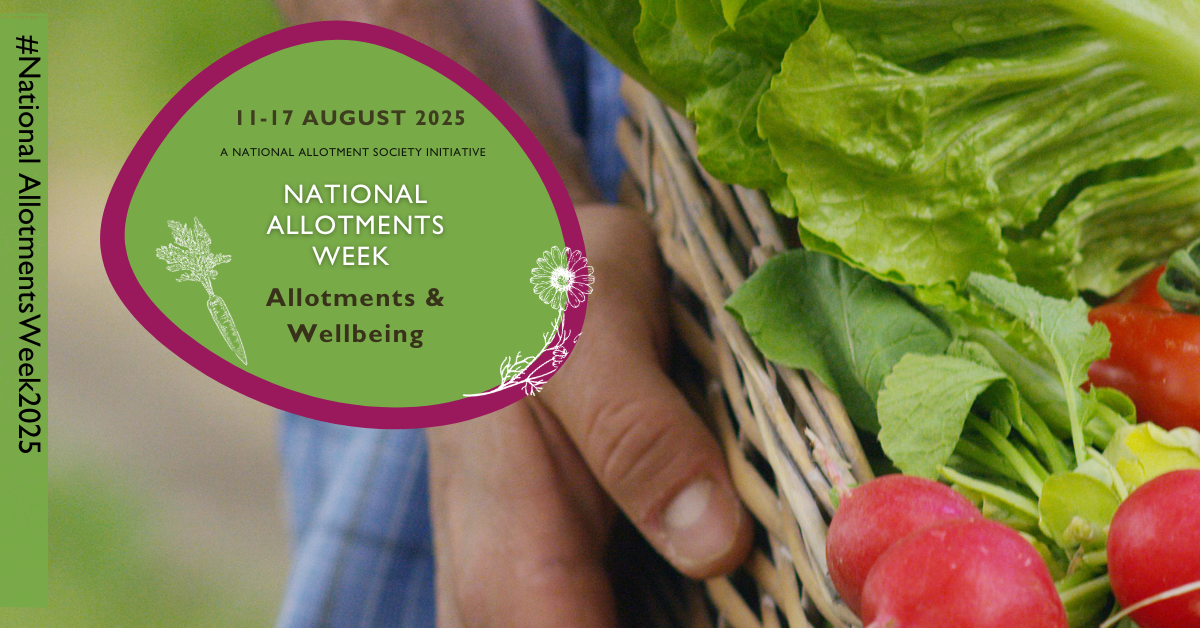

The National Allotment Society have announced this year's theme for National Alloments Week, which will run from 11th until 17th August 2025; this week marks the 22nd year of celebrating Allotments with the NAS' annual awareness campaign.
The theme for 2025 will be Allotments and Well Being.
We look forward to sharing useful and informative topics about allotments and well being throughout the week.
National Allotment Weeek 2024 theme was Biodiverity.
National Allotments Week 2023 theme was educating growers about soil health.
National Allotment Week is a yearly event, which is all about allotments, that are small plots of land that are rented out to people by a local council or private association or society for gardening, growing fruits and vegetables or even livestock. The week is all about celebrating these green spaces and the benefits they have for our health, our wellbeing and the planet!
As far back in history as we can probably go, people have grown their own produce but actual allotments that you can rent started in the Victorian era. Allotments as we know them today, stem from the General Enclosure Act of 1845 that made provision for 'field gardens' to be used by the landless poor, although very little enclosed land was actually set aside for this purpose.
There was a huge increase in allotment use during the First and Second World Wars as blockades resulted in a shortage of imported food. Disused railway land, public parks and private gardens were all utilised to grow fruit and vegetables.
In more recent times, allotments have increased vastly in popularity with a far greater awareness of sustainability and health benefits; as well as the financial and social benefits. More and more families and a younger demographic have turned to growing their own and allotment. Waiting lists have become a long 'waiting game' or local authorities have closed their lists in some areas of the UK with a lack of land space for the increasing demand. Many have transformed their gardens to grow produce rather than a lawn or flora and fauna too; just like their grandparents/great grandparents may have done during the conflicts last century.